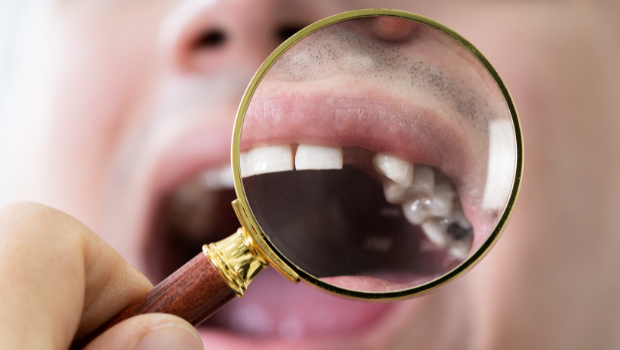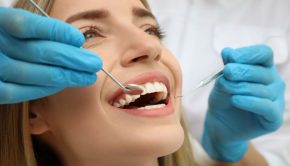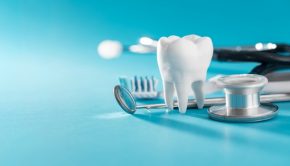Missing Teeth Can Impact Our Health
Missing teeth put us at risk for other dental problems, as well as systemic health issues. That’s why it’s crucial to replace missing teeth with metal-free dental implants.
Missing Teeth Make Eating Difficult: Individuals with missing teeth often report pain or difficulties chewing. The inability to eat properly is linked to poor nutrition due to a restricted diet. This can contribute to nutrition deficits and even digestive issues.
Lost Teeth Harms Other Teeth and Gums: Teeth which are no longer supported by healthy gums begin to loosen and may even fall out. The absence of teeth creates gaps between existing teeth, enabling the remaining teeth to shift or lean into the void spaces. This contributes to weakened ligaments that increase the risk for teeth to fall out, or it can cause the jawbone to shrink, lose density and create misalignment.
Systemic Health Issues: When a tooth is out, neighboring teeth are harder to clean, subject to increased plaque buildup and additional decay. This heightens the risk for periodontal disease and a greater chance of infection to the mouth and the rest of the body. The health of our mouths is a reliable indicator for assessing whole body health. Studies have shown how oral health and systemic health is connected in diseases such as diabetes, cardiovascular diseases and dementia.
Missing Teeth Make People Look Older: Missing teeth cause bone loss, which affects facial structure. Teeth naturally serve to protect the jawbone, which helps maintain the shape of the face. Like a house with a collapsed frame, missing teeth are unable to support the jawbone, and as the bone deteriorates, it can no longer support the facial muscles, causing them to droop. When facial muscles begin to sag, it begins to alter the overall shape and structure of the face, giving the appearance of having aged. However it’s more than the aesthetics, it’s about quality of life and longevity. Contemporary research demonstrates how missing teeth can significantly reduce a person’s lifespan.
Missing Teeth Take Years Off Our Life: The statistics on missing teeth is rather bleak. According to the U.S. Centers for Disease Control and Prevention, most Americans have lost an average of 12 teeth by age 50. But it gets worse as we continue to age. More that 25 percent of adults ages 65 to 74 will have lost all their teeth. The focus of recent studies have indicated a relationship between tooth loss and mortality—individuals with more missing teeth live shorter lives. That’s why it’s so important for people to replace missing teeth.
A Broken Smile Can Damage Confidence: We’re naturally inclined to be attracted to individuals that have a pretty smile or brighter, whiter teeth. It’s common for individuals with missing teeth to develop insecurity about their smile, which can affect self-esteem, mental health and even physical health.
Replace Missing Teeth to Improve Oral and Systemic Health: Replacing missing teeth can improve our health and quality of life. Restoring teeth with a metal-free dental implant helps support a healthy mouth and healthy jaw. By improving oral health, we are also improving our systemic health. Zirconia ceramic dental implants are strong and durable, and they fit, function and look like natural teeth. Plus, they are hypoallergenic and biocompatible, making them a safe and friendly option to the body.
Dr. Vladimir Gashinsky is the owner of the Holistic Dental Center of New Jersey. For appointments and more information, call 973-457-4244 or visit HolisticDentalCenterNJ.com




























